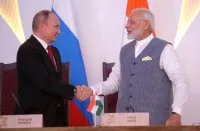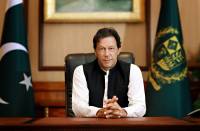Many have long criticised what has been described as Pakistan’s military establishment’s overbearing role in political policy making. While Imran Khan looks to harmonise and modernise the relationship between elected officials and the establishment, there is a much more urgent elephant in the room that has scarcely been addressed. In the past, when Pakistani governments have sought to address issues of economic gravity, finance ministers tended to secure the appointment of economic “think tanks” that operate independently of government oversight and scrutiny. In such circumstances, these economic groups of experts are often ignored or when they are not, their failed policies do not result in any meaningful public accountability.
In this sense, economic think tanks and advisory boards have in the past acted as a well-meaning (at times) but ultimately unaccountable group of individuals whose subtly but undeniable influence is a very real threat to a government’s ability to operate an economy that benefits the masses in accordance with a democratic mandate.
Imran Khan’s PTI party has long argued for the creation of a modern welfare state based on Islamic characteristics. Such a state with an economic directed towards elevating the condition of the people would replace micro-economies throughout Pakistan that continue to operate on a neo-feudal and dangerously de-centralised basis. It is in this spirit that has guided Imran Khan when appointing a new Economic Advisory Council (EAC) of eighteen experts. Crucially, Imran will head the EAC himself and all of the proposals developed by the Council must be signed off by and/or amendment directly by the Prime Minister.
Pakistan’s Samaa television reports on the composition of the new council in the following way
“Members include Dr Farrukh Iqbal, the dean and director of the Institute of Business Administration, Dr Ashfaque Hassan Khan, principal and dean of the School of Socials Sciences and Humanities at the National University of Sciences and Technology, Dr Ijaz Nabi, professor of economics at Lahore University of Management Sciences and Dr Asad Zaman, vice-chancellor of the Pakistan Institute of Development Economics.
Sustainable Development Policy Institute Executive Director Dr Abid Qayum Suleri, professor of economics at the Lahore School of Economics Dr Naved Hamid, former State Bank of Pakistan governor Syed Salim Raza, economist Sakib Sherani, professor of economics at Princeton University (department of economics and Woodrow Wilson School of Public Policy) Dr Atif R Mian, Dr Asim Ijaz Khwaja, Sumitomo – FASID Professor of International Finance and Development at the Harvard Kennedy School and Dr Imran Rasul, professor of economics at University College London are also on the list.
In addition to the members from the private sector, the minister for finance, revenue and economic affairs; minister for planning, development and reforms; and the governor of the State Bank of Pakistan will also be part of the council”.
The major issue that the EAC will have to address is Pakistan’s balance of payments deficit which has led the country to the verge of economic ruin. It will become crucial for Pakistan to secure a loan from a major lender with the western orientated International Monetary Fund (IMF) or alternatively Shanghai based financial institutions being the sources contending to be a long term lender to Pakistan.
Based on the fact that the US welcomed the election of the new PTI led government by threatening to withdraw $300 million worth of “aid” to Islamabad and based also on the fact that IMF loans are typically contingent on implementing domestic spending measures that would be the antithesis of PTI’s proposed welfare state with Islamic characteristics, working with financiers in China, Pakistan’s all-weather partner appear to be a vastly more attractive offer vis-a-vis the IMF.
In any case, based on the economic realities that the new government inherited from the disgraced previous government, the EAC’s efficacy will be of supreme importance to the country. By taking the first steps in creating a Council whose expertise appears to be globally minded and time tested, Imran Khan’s leadership of the EAC will insure that the new body is responsive to the programme set forth by the government and that Council’s proposals must therefore not contradict the mandate upon which PTI was successfully elected.
The composition and structure of the EAC is symptomatic of a new era of accountability among the many institutions of government. Crucially it also represents the fact that under PTI, non-elected elements of the government will ultimately have to answer to the highest elected official in the country rather than answer only to themselves as was the status quo for much of the past.



